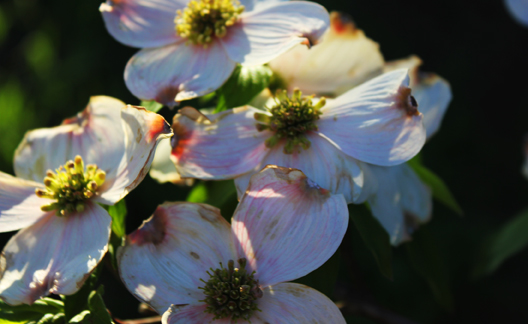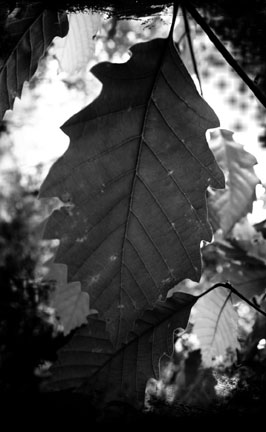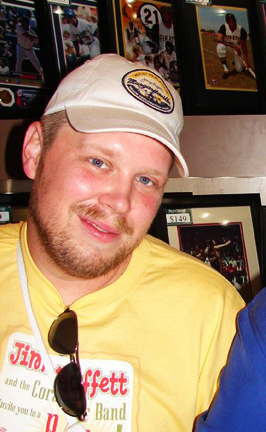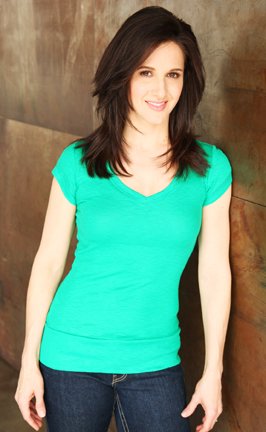Love God, Love Others
by Joshua Heston
“Peace I leave with you, my peace I give unto you: not as the world giveth, give I unto you. Let not your heart be troubled, neither let it be afraid.” — John 14:27
I have a confession to make. I don’t watch TV. Well, not network or cable or dish, anyway. I do indeed have a TV, but it’s only attached to my DVD player — and for the record... I love movies.
But recently, I had the opportunity to watch regular, everyday TV — the kind of everyday TV I grew up watching. And after only one episode of Dateline NBC with Lester Holt, I learned something fascinating. I had no idea there was such a high statistical likelihood I was living next-door to an axe murderer! By the time the channel was changed, I was up to my ears in a sudden bout of paranoia.
I hate to let folks in on a well-kept secret, but traditional media promotes unrest, fear, paranoia, anger and resentment. You know why? Because those emotions will keep you glued to your set through the commercial break, ensuring you — and millions of others — watch right through the commercials for Diet Mountain Dew, Doritos and Chevrolet. It’s not evil, just good marketing. But the end result on our side? A severe lack of peace.
Of equal importance, traditional news outlets expect Christians to look like hypocritical freaks when asked social questions of any controversial nature. The only problem? We typically oblige.
But Jesus spoke of peace and He was quite clear on the subject. In a world turned upside down in war, famine, unrest and general paranoia, how is peace even possible?
“But God demonstrates his own love for us in this: While we were still sinners, Christ died for us.” — Romans 5:8
“For it is by grace you have been saved, through faith — and this is not from yourselves, it is the gift of God, not as a result of works, so that no one may boast.” — Ephesians 2:8-9
The whole concept of “Grace,” is something I wrestled with for quite some time. And if only for this: the traditional use of the word means, according to the dictionary, “Simple elegance or refinement of movement.” The other definition is, “Courteous goodwill.” Neither exactly make sense in this particular context.
God is graceful? He is a nice, courteous host? No, not exactly what we’re talking about. It is, rather, the last definition that is the most meaningful: “Free and unmerited favor of God as manifested in the salvation of sinners.”
“For the wages of sin is death, but the free gift of God is eternal life in Christ Jesus our Lord.” — Romans 6:23
So we all are sinners condemned. But God sacrificed His own Son — Jesus — to take our place. And then after Jesus died on the cross, after living a life without sin, He rose from the dead.
In a world of rational science, it may sound decidedly irrational. But this is the crux, if you will, of the Christian faith. It is the heart of my faith. I cannot prove to you — scientifically — all this Jesus stuff is true. But in my heart, I know it is.
“Then the 11 disciples went to Galilee, to the mountain where Jesus had told them to go. When they saw him, they worshiped him; but some doubted. Then Jesus came to them and said, ‘All authority in heaven and on earth has been given to me. Therefore go, and make disciples of all nations, baptizing them in the name of the Father and of the Son and of the Holy Spirit, and teaching them to obey everything I have commanded you. And surely I am with you always, to the very end of the age.” — Matthew 28:16-20
Words like Gospel and Disciple can be confusing. In the past, if someone asked me what the Gospel was, I would have just said, “It’s the Gospel. The Gospel of John. The Gospel of Luke. The Gospel of Mark. It just is.”
Gospel means Good News. And that’s a pretty good indication that — as Christians — we need to be sharing some very, very good news (not condemnation and judgement and hate and wondering why the rest of the world isn’t responding).
But back to another confusing word: Disciple. Fancy word. Simple meaning. It just means Learner. To be a learner of Jesus. Somebody who wants to learn everything they can from Jesus and study him and grow up to be just like him. And, when you read the books of Matthew, Mark, Luke and John — each a unique account of Jesus’ life — you notice a trend. Simple, everyday folks (and a lot of downtrodden, looked-down-upon, cast out people) were magnetically drawn to him.
Jesus also commanded his learners to obey everything he commanded. Now, it’s easy to get lost in a lot of Old Testament laws and bylaws, but in Matthew 22:37-39, we get the greatest, most important commandment from Jesus:
“Love the Lord your God with all your heart and with all your soul and with all your mind. This is the first and greatest commandment. And the second is like it:
“Love your neighbor as yourself.”
Surprisingly simple, isn’t it? And so different from human nature. Human nature wants rules and regulations — deep self-flagellation or a strange, unearned sense of superiority. At best, we often disguise irrational judgement and condenmnations as “love” and increasingly wonder why society as a whole simply tunes us out.
But Jesus’ commandment was just that — a commandment, not a suggestion.
Human nature also loves tribes. Perhaps it’s leftover from childhood and make-believe forts and exclusive “member-only” tree houses, but there’s something within us that wants to twist faith into an exclusive club with secret handshakes and special rules.
Love God. Love others.
So exceedingly simple.
Now, 2,000 years after the fact, it is easy to forget just what a tumultuous place Judea was in Jesus’ time. Not long before, the Maccabean Revolt — a war against Greek influence — had taken place. Roman rule has replaced Greek and society was split between those who grudgingly tolerated Roman rule and those who profited by it.
Ultimately, the religious folks — the very people who had been waiting for the Messiah to appear — crucified Jesus, angry he was not the political and military leader for which they hoped. No, Jesus’ new kingdom was one in which all the world was given peace with God — but this was a spiritual peace and a spiritual perspective. The Jewish religious leaders — under the thumb of Rome — wanted more. They wanted a revolt, but with God himself as their military commander.
Ultimately, some 30 years after Jesus’ crucifixion, the Jewish people took matters into their own hands, rebelling against the Roman Empire. In the end, just less than a thousand Jewish zealots set up fort on the mountaintop of Masada, waiting for God to answer them — to protect them against the great Roman army which surrounded them.
Masada today is a lonely, haunted place — a place of death for the zealots killed one another rather than surrender.
As a political and historical symbol for modern-day Israel, Masada is given special reverence, and rightfully so. But as a symbol of our faith, Masada — or any fortress to which we take, be it physical or spiritual — must not be our path.
Love God. Love others.
Somehow, we’ve gotten the idea it is our idea to defend God. “What do you think about ....?” the news reporter asks, and Christians bristle, angry that yet another human being is “attacking” God. And we respond with vitriol.
Love God. Love others.
I particularly like the answer God gives in the book of Job. Admittedly, Job has suffered terribly, but there is a certain petulant quality when Job — a mere mortal — demands a reason from God, the creator of all things. And God answers,
“What is the way to the abode of light? And where does darkness reside? Can you bind the chains of the Pleiades? Can you loosen Orion’s belt? Can you bring forth the constellations in their seasons or lead out the Bear with its cubs? Do you know the laws of the heavens? Can you set up God’s dominion over the earth?”
Seriously, does this sound like a God we need to defend? Hello? Anyone? I think God has his defense covered. I don’t think he’s concerned. But for that matter, as God’s people, we might want to think twice about disobeying his most important commandments.
Love God. Love others.
As if there were any doubt, Jesus further elaborates what this love is supposed to look like. First in Matthew 5:43-45, “You have heard that it was said, ‘You shall love your neighbor and hate your enemy.’ But I say to you, love your enemies and pray for those who persecute you, so that you may be sons of your Father who is in heaven.”
Love and prayer for our enemies, not just people with whom we disagree? This Jesus stuff is clearly getting out of hand! Either it’s time go back to our old, human ways of doing things — or embrace the possibility that this “Gospel” is indeed Good News, not just for ourselves, but for everyone, even our enemies.
But wait, it gets worse. Jesus said, “Do not judge so that you will be judged. For in the way you judge, you will be judged; and by your standard of measure, it will be measured to you.” — Matthew 7:1
This is deep, uncomfortable stuff. But then, Jesus’ words always tend to have that effect on the proud, the privileged, the self-righteous. We want to judge. We want to condemn. We want to hate. We want to hole up in our fort and shoot arrows at anyone even vaguely different than ourselves. But no matter how we dress our attitude up, the attitude is the same: sadly, unfortunately, unabashedly human and very far removed from God, from his light and love and all the joy and unbridled beauty of his creation.
Love God. Love others.
So, what to do? First, realize our own deep, obvious shortcomings. Shortcomings that separate us from God and all that is good. Second, accept the possibility that God bridged that gap — the distance between us (and all our screwed-up-ness) and his great, loving, creative power — through Jesus. From there, seek to be God’s learner, his disciple, and let him lead you. Lastly, ask him to show people — your neighbors! — to you as he sees them: his children in need of great love.
Let go of the results. I have no idea how God will work with you. I don’t know what miracles — great and small — will result. But I don’t have to. My job description is so very simple.
Love God. Love others.
The end result? No more barriers. No more fear. We have peace with God and peace with those around us. No more tribes. No more teams. Leaving the end results up to God.
He’s got this.
May 10, 2015
plate 1. Tattered dogwood blossoms in the afternoon light on the grounds of The Great Passion Play, Eureka Springs, Arkansas.
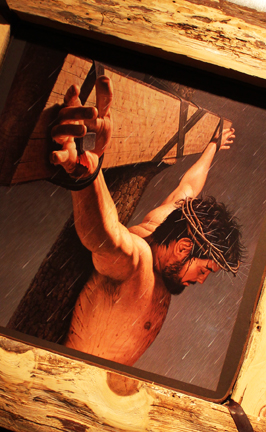
plate 2. The Crucifixion by Harry Antis, 1900s. “Will you accept what I have done in this my sacrifice for all of your sin, that you and the Father God may be reconciled and restored to a personal relationship again?”
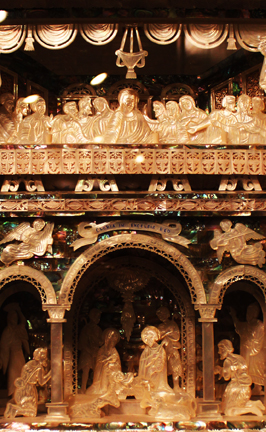
plate 3. The Gospel in Mother of Pearl on Wood. A mock-up for a larger piece which King Hussein had made as a gift for the Pope. 1900s.
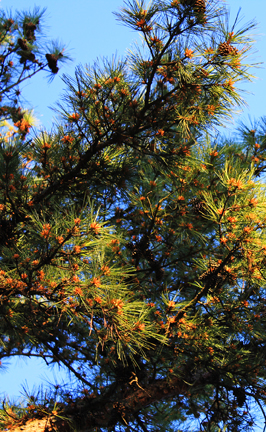
plate 4. Pine boughs in the afternoon sun near Eureka Springs. Evergreens have long been a symbol of everlasting life.
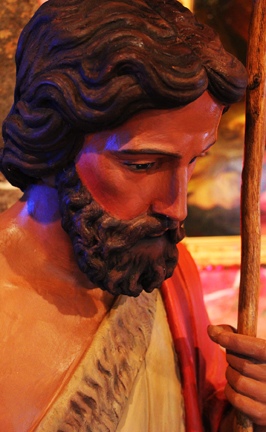
plate 5. An icon of St. Peter, born a humble fisherman. “And I say also unto thee, That thou art Peter, and upon this rock I will build my church; and the gates of hell shall not prevail against it.” — Matthew 16:18
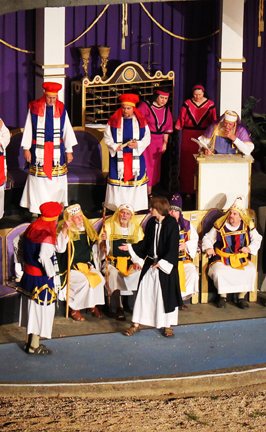
plate 6. The Sanhedrin convenes, questioning the matter of this Jesus.
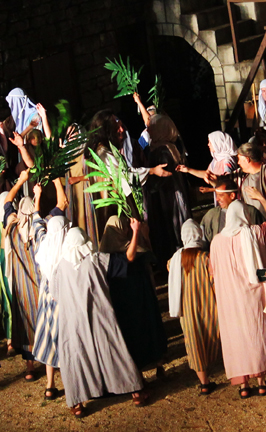
plate 7. Palms of Victory. The Jerusalem crowd welcomes Jesus as the Messiah.
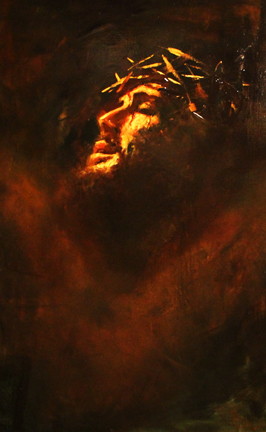
plate 8. “My God, My God, Why Hast Thou Forsaken Me,” oil on canvas by Edward Runci, 1900s.
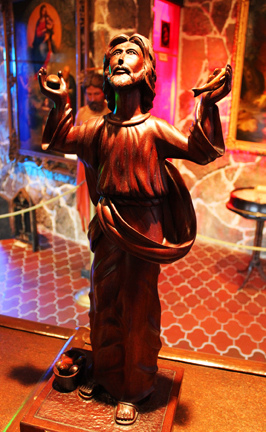
plate 9. Jesus with the loaves and fishes. “Icons are one of the oldest forms of Christian art, appearing as early as the first Christians. The word ‘icon’ is Greek, and means ‘sacred image.’ Icons are a very important part of the worship in the Orthodox Churches of Eastern Europe.”
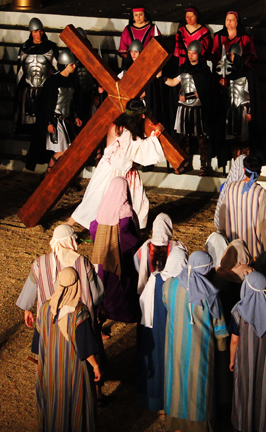
plate 10. The Via Dolorosa, Jesus carrying the cross.
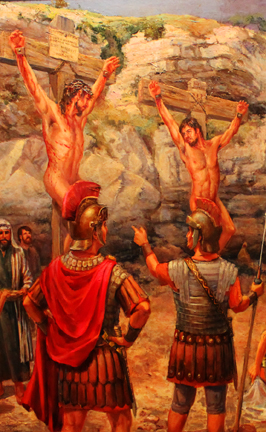
plate 11. “Remember Me,” oil on canvas by Marilyn Todd-Daniels, 20th century. “The focus of this piece is the thief who made it into paradise. Based on the dialogue between Jesus and the thief. Remember me when you come into your kingdom. Jesus replies, This day you will be with me in paradise.”
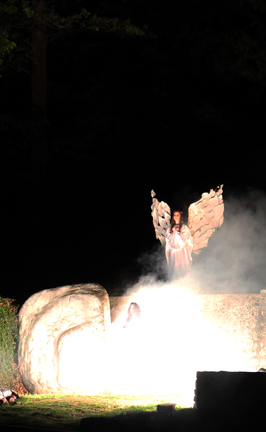
plate 12. An angelic messsenger presides over Christ’s resurrection.
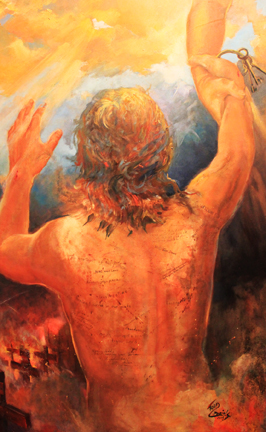
plate 13. Thirty Nine Stripes, oil on canvas by Marilyn Todd-Daniels. “By His stripes we are healed. Notice in Christ’s right hand are the keys which He snatched from Satan’s grasp.” Revelation 1:17, 18
Job 38
“Where were you when I laid the earth’s foundations? Tell me if you understand. Who marked off its dimensions? Surely you know! Who stretched a measuring line across it? On what were its footings set, or who laid its cornerstone — while the morning stars sang together and all the angels shouted for joy?
“Who shut up the sea behind the doors, when it burst forth from the womb, when I made the clouds its garment and wrapped it in thick darkness, when I fixed limits for it and set its doors and bars in place, when I said, ‘This far you may come and no farther; where is hwere you proud waves halt.’?
“Have you ever given orders to the morning or shown the dawn its place, that it might take the earth by the edges and shake the wicked out of it? The earth takes shape like clay under a seal; its features stand out like those of a garment.
“Have you journeyed to the springs of the sea or walked in the recesses of the deep? Have the gates of death been shown to you? Have you seen the gates of the deepest darkness? Have you comprehended the vast expanses of the earth? Tell me, if you know all this.”
Photo credits: J. Heston. Passion Play, Eureka Springs, Arkansas. May 2, 2014.

plate 14. An actor pauses before continuing to the Passion Play amphitheatre, as seen through red stained glass.

plate 15. An Easter lily in detail, symbol of hope and eternal life. Photo by Donny Heston.

plate 16. Rocks, blossoms, palms, evocative hothouse images of Bible times. Photo by Donny Heston.

plate 17. “For as lightning that comes from the east is visible even in the west, so will be the coming of the Son of Man.” — Matthew 24:27 Photo by Joshua Heston, May 29, 2011
